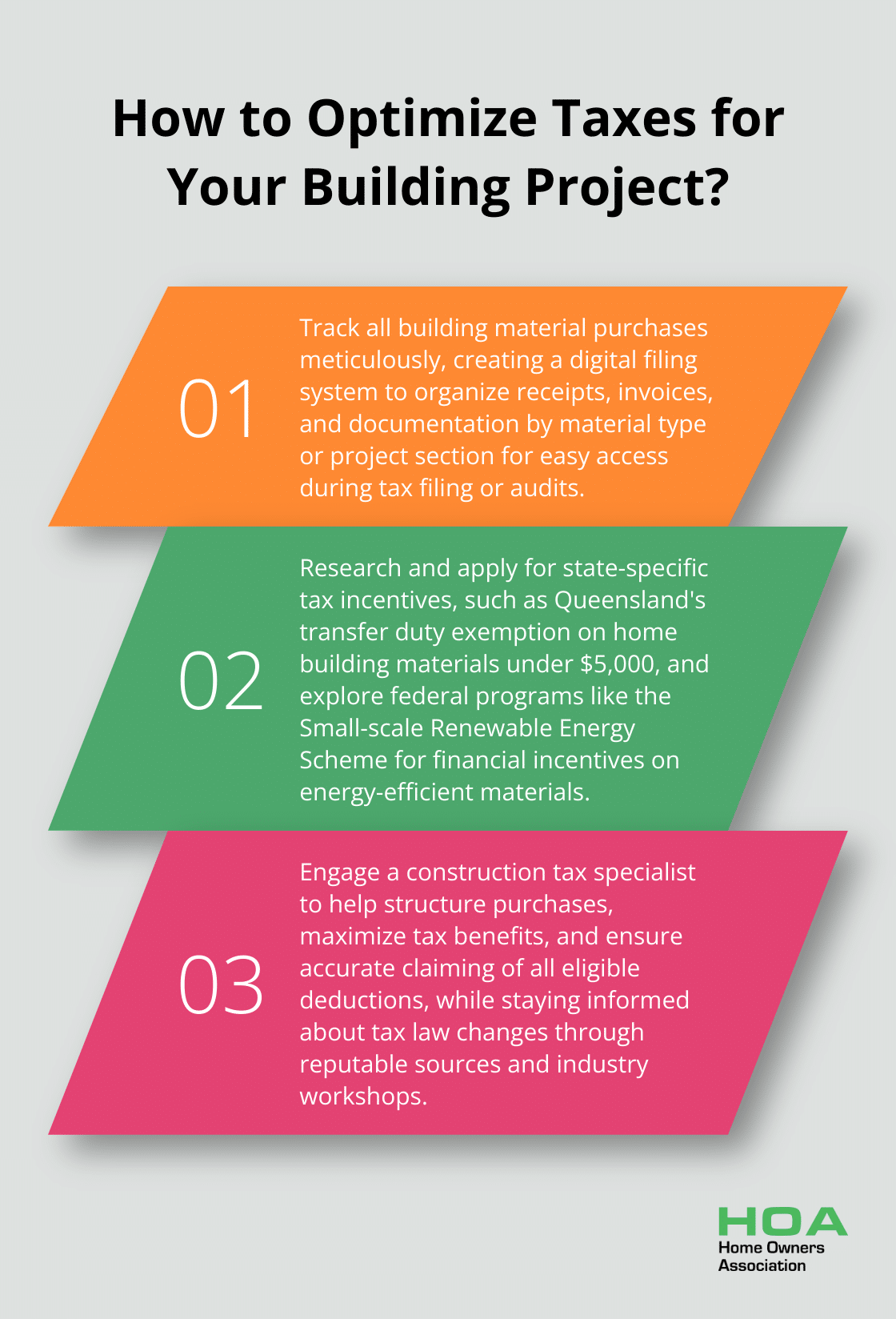
Building & Construction Tax in Australia: Navigating ATO Compliance and Regulations
Important Disclaimer: The information provided in this article is for general guidance only and does not constitute legal, financial, or tax advice. The rules surrounding notices of intent are complex and subject to strict deadlines. You should consult with a qualified professional, such as a registered tax agent or solicitor, to discuss your specific circumstances before taking any action.
Key Takeaways
- Construction tax in Australia includes GST, PAYG, FBT, TPAR, and more, specific to the construction sector.
- The Australian Taxation Office (ATO) considers construction high-risk due to subcontracting and cash transactions.
- Businesses must comply with Taxable Payments Annual Reports (TPAR) and carefully monitor contractor payments.
- Common tax issues include underreporting, cash dealings, worker misclassification, and phoenix activity.
- Preparing for an ATO audit requires thorough record-keeping and clear tax positions.
Table of contents
- Building & Construction Tax in Australia
- Key Takeaways
- Overview of Construction Tax in Australia
- ATO’s Focus on the Construction Sector
- Understanding ATO Audits in the Construction Industry
- Challenges for the Construction Industry
- Frequently Asked Questions
Overview of Construction Tax in Australia
Construction businesses operate within a complex tax structure. Key obligations include income tax, Fringe Benefits Tax (FBT), GST, and TPAR reporting.
Tax responsibilities vary for contractors, firms, and subcontractors. For example, contractors often focus on BAS and PAYG, while larger firms manage payroll tax and compliance across multiple entities.
Tax concessions may be available, subject to specific criteria. For example, to qualify for the 25% base rate entity, a firm’s passive income must remain below a certain threshold and turnover under $50 million.
ATO’s Focus on the Construction Sector
The ATO actively monitors the construction industry due to its layered contracting, mobile workforce, and reliance on cash transactions.
The prevalence of cash transactions is a significant concern, often lacking the necessary traceability and documentation. This can lead to audits and penalties.
Common compliance issues include:
- Unreported GST on cash jobs
- Inadequate TPAR reporting
- Incorrect worker classification
- Improper use of tax concessions
The ATO utilizes data-matching technology to analyze BAS, bank records, and contractor returns, quickly identifying inconsistencies.
Understanding ATO Audits in the Construction Industry
ATO audits are thorough, examining contractor payments, expense claims, TPAR data, GST, and more, potentially covering extensive periods.
Potential audit triggers include:
- TPAR reporting discrepancies
- Late or unusual BAS lodgments
- High levels of cash activity
- Whistleblower reports
Proactive preparation is crucial. Businesses should engage a registered tax agent, maintain comprehensive records, and promptly respond to ATO inquiries.
Challenges for the Construction Industry: The Cash Economy
The construction industry still has a significant cash economy, encompassing unrecorded payments and informal work, leading to inaccurate records and increased ATO scrutiny.
Examples include:
- Cash payments to subcontractors
- Unrecorded material purchases
- Undeclared handyman services
- Unreported income from small projects
This not only violates tax laws but also disadvantages businesses operating legally.
Frequently Asked Questions
1. Do I always need to lodge a TPAR if I work in construction?
No. Only businesses deriving over 50% of income from building services and paying contractors are required to lodge a TPAR. Consult the ATO for specific criteria.
2. How can I reduce my audit risk?
Maintain consistent tax treatment on invoices, ensure TPAR data matches internal records, monitor GST lodgments, and seek regular advice from a tax professional.
3. Is cash payment illegal?
Cash payments are not illegal, but all transactions must be recorded, declared, and appropriately taxed.
4. What happens if I unintentionally misclassify a contractor?
Misclassifying a contractor as an independent contractor could result in liability for superannuation, PAYG, and other employee entitlements, even if unintentional. Regular reviews are essential.